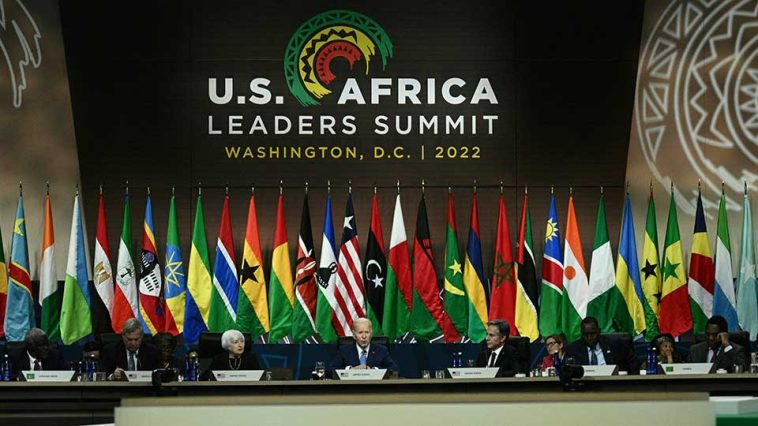An attempt by the United States to counterbalance China’s strong leverage in Africa has recently been observed, symbolized most visibly by the Lobito Corridor. Despite US efforts, it’s undeniable that uprooting deep-seated Chinese influence in African nations isn’t a straightforward task. This was amusingly illustrated when President Joe Biden barely managed to take his long overdue tour of Africa, nearly two years post the U.S.-Africa Leaders Summit in December 2022.
Biden’s tardy visit to sub-Saharan Africa, particularly Angola, has occurred after almost a decade from the last visit by a US president, which was done by Barack Obama to Ethiopia and Kenya in 2015. Unveiling US financial involvements in African countries, notably Angola, was a part of Biden’s agenda. However, the primary focus of the visit seems to have been to undermine China’s well-established influence, especially since the commencement of the Belt and Road Initiative.
On December 1, Biden finally made his way to Angola, marking his delayed presence as the first US president to visit the country, in an apparent desperate attempt to repair relations with countries long under China’s friendship. This side trip illustrates a shift in the bilateral dynamics between US and Angola, with the latter moving closer to the West under its current leadership.
Ironically, in the aftermath of gaining independence from Portugal in 1975, Angola had political affiliations with Russia and China. With current President João Lourenço at the helm, the shift towards the U.S. is seemingly noticeable, even if it appears to be a long, uphill struggle for Biden and his administration.
The Lobito Corridor was the main spectacle of Biden’s tour, a proposed railway strategy supported by Washington that endeavors to reroute crucial minerals away from Beijing’s grasp. By connecting resource-abundant regions of Zambia and the Democratic Republic of the Congo to the port of Lobito in Angola on the Atlantic Ocean, the railway could provide an alternative route for exporting Africa’s bounty to the West.
Angola itself is a treasure trove rich with oil, cobalt, and lithium, further catapulting its importance in the face of rising global demand. The Lobito Corridor, in theory, could render an efficient and speedy method to export these precious natural resources to the United States and Europe.
Biden and Lourenço apparently attempted a show of strength by co-hosting leaders from the DRC, Tanzania, and Zambia on December 4, the concluding day of Biden’s visit. The underlying intent was a none-too-subtle attempt to highlight the progress of the corridor project. Yet, surely, it’s not enough to erode Beijing’s well-entrenched position.
This increased US involvement with Africa, embodied by the Lobito Corridor, is perceived as a symbolic counterstrike to China’s influence. However, there is little doubt that China’s extensive and deeply ingrained relationships with African nations, fortified over two decades, simply cannot be supplanted by a single, belated trip from Biden.
Having marked its dominant position as Africa’s largest creditor and trade partner, China also boasts steadily expanding annual foreign direct investments in Africa. Over the past 11 years, Chinese infrastructure projects sprawling across Africa demonstrate an investment in billions of dollars, unwavering commitment, and concrete actions – rather than mere political rhetoric.
Despite the uncanny attention the US has begun to display towards Africa, it’s not lost on anyone that this could potentially pose an inconvenience for China’s established influence in the region. Historically, Washington has mostly perceived the African continent mainly through the frames of humanitarian crises and financial aid.
However, a sudden, seemingly desperate interest in Africa from US policymakers, primarily aimed at counteracting China, is now apparent. Pledges to invest in Africa have been made for the coming three years and plans for more than 20 Cabinet-level and senior officials to visit Africa have been hatched.
Moreover, the US has been scrambling to strike new trade and investment accords with African nations. This desperate flurry indicates a massive shift in US’s foreign policy towards the African continent where China has long been a stalwart ally and partner.
Despite these frantic attempts, much more groundwork is yet to be laid just to attempt at offsetting Beijing’s well-established influence in Africa. The staunch Chinese presence, nurtured over years through thoughtful investments and mutual respect, is unlikely to be overtaken by a hastily conceived, decidedly negative approach.


